THE SKINNY:
This class meets every Tuesday
and Thursday (with the exception of the week of Spring Break March 7-15)
over a total of 16 weeks and 28 sessions beginning Tuesday Jan. 20 and
concluding Tuesday May 5 from 1:30-2:45 p.m. in 319 Innovation Hall.
There is no final exam; the emphasis of the course is on your game coverage
and writing assignments.
OUR CONTRACT: This syllabus represents an agreement (or contract) between the student and the instructor. By remaining enrolled in this course, each student is accepting the policies and guidelines covered in this syllabus.
KEY DATES:
- Feb. 3: Last
day to drop a course (with no tuition liability)
- Feb. 20: Last
day to drop a course (with full tuition liability)
- March 7-15:
Spring Break
- May 5: Class
ends (Tuesday)
See the full Spring Semester schedule.
IMPORTANT NOTE:
Students who do not confirm their registration by attendance at the
first class meeting are subject to being dropped at the discretion
of the department and instructor. Students must not assume that the
department will automatically initiate a drop for not attending class.
Students who register for courses they do not attend are themselves
responsible for dropping the class. If you miss the first class,
you must contact me with your intention to remain registered or you
could be dropped for a waitlisted student. .
HOW
TO CONTACT MR. KLEIN:
- Office hours: Monday
and Wednesday, 9:30-11:30 a.m., 219-B Thompson Hall; Tuesday and Thursday,
9:30 a.m.-1 p.m., in my 219-B Thompson Hall office (or 311 Johnson Center if noted on my office door).
- By e-mail:
sklein1@gmu.edu
- By phone: 703-993-2199
(but I recommend e-mail)
- My webpage: http://mason.gmu.edu/~sklein1/
- Class blog: http://gunstontickle.blogspot.com/
COURSE PREREQUISITES:
- Comm303/Writing Across
Media (this is NOT a co-requisite); can only be waived by the instructor
- Familiarity with the
Internet and general sports knowledge
- Basic keyboard skills;
all coursework MUST be typed and double-spaced on a computer
- Ability to write in
Associated Press style (which is why Comm303 is required!)
OVERVIEW and EXPECTATIONS:
Being a sports
journalist is the most fun you can have and still get paid for
working. But that doesn't mean it's easy. The days of sports as the"toy
department" of the newspaper are long gone, as former long-time
Detroit Tigers broadcaster
Ernie
Harwell might say. To be a sports reporter, editor, columnist,
broadcaster, blogger or online journalist, 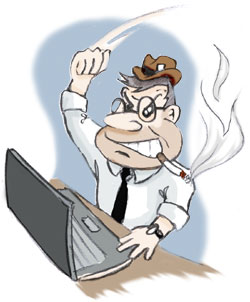 you
also must master the skills of a business reporter, a legal reporter,
a medical reporter and a metro reporter -- as well as be comfortable
using the Internet as a resource tool and breaking-news medium. Print,
broadcast and online journalism are converging today in ways we never
imagined barely a decade ago. As sports journalists like Tony
Kornheiser, Michael
Wilbon and Mitch
Albom have demonstrated, journalists must be able to
work
across a variety of media. On the day the Joe Gibbs
story broke about his return to the Washington Redskins (the story
broke just after the paper had gone to press), Mark Stencel,
then senior editor for continuous news at the Washington Post told
me: "We had an alert on our homepage by 9 a.m. and a full story
by 9:10 (a re-write on our final edition story). Mark
Maske has been phoning in updates to us on his mobile
phone all morning -- and also did a nice audio interview for the site
about what it means for the team and the fans." And on the day
Gibbs resigned, the best updates were available on beat writer Jason
La Canfora's "Redskins Insider" blog. you
also must master the skills of a business reporter, a legal reporter,
a medical reporter and a metro reporter -- as well as be comfortable
using the Internet as a resource tool and breaking-news medium. Print,
broadcast and online journalism are converging today in ways we never
imagined barely a decade ago. As sports journalists like Tony
Kornheiser, Michael
Wilbon and Mitch
Albom have demonstrated, journalists must be able to
work
across a variety of media. On the day the Joe Gibbs
story broke about his return to the Washington Redskins (the story
broke just after the paper had gone to press), Mark Stencel,
then senior editor for continuous news at the Washington Post told
me: "We had an alert on our homepage by 9 a.m. and a full story
by 9:10 (a re-write on our final edition story). Mark
Maske has been phoning in updates to us on his mobile
phone all morning -- and also did a nice audio interview for the site
about what it means for the team and the fans." And on the day
Gibbs resigned, the best updates were available on beat writer Jason
La Canfora's "Redskins Insider" blog.
So be ready to rethink your concept of what a sports journalist is
and what she or he is expected to do.
In this course, you will learn how to write a sports story. We will
address these basics while examining issues from race and gender to
hero worship and sportsmanship. We will examine the ethics of what
sports journalists do and why they do it. For these reasons, this
course, like sports itself, is equal parts journalism, history and
sociology.
Some expectations:
- Please don't miss
class. We meet together only 28 times. Or think of it this way:
If you're an in-state student (and my math is correct), missing a class
is like throwing away $34 ($100 per class for an out-of-state student).
Classwork cannot be made up unless previously excused by the
instructor. If you need to miss class, clear it with the instructor
in advance, preferably by e-mail. If the absense is unexpected, I expect
a note of explanation and I include the notes as part of class participation.
Class attendance and participation make up a portion of your final grade.
- Students must type
and double-space all writing assignments, sometimes utilzing e-mail
to file a story on deadline. Hand-written assignments will not
be accepted.
- Because I communicate
with many students by e-mail, it is important that you include the course
number (371-001) and the name of the course (Sports Writing & Reporting)
in the SUBJECT LINE, along with the topic of the specific e-mail.
Failure to do so could result in the e-mail getting eaten by my SPAM
filter! Don't just hit the reply button without adjusting the SUBJECT
LINE; that's poor e-mail ettiquete.
- If you need to have your cellphone
on during class, you must clear it with me.
- It is tempting to multitask
during class with computers at every desk -- do e-mail, IM, surf the
Internet. It is rude to do so when I'm lecturing or our guests are talking.
If you can't resist, please leave the room. Don't make me ask you to
leave.
- Want to succeed in
this class? Write clearly, simply and accurately. Use basic grammar
and punctuation rules and simple sentence structure: craft every
sentence. It worked for Hemingway, who was a pretty good sports
writer in his day. It can work for you!
- Turn in your work
on deadline. Late work will not be accepted unless previously
cleared by the instructor. You will be penalized one full grade for
every day your work is late.
- We will review and
practice basic editing skills, reporting and interviewing techniques,
quoting and paraphrasing. You will learn how to write a game story in
this course.
- Keep your Associated
Press Stylebook with you for every class and use it for every assignment.
Good journalists also carry a dictionary with them. I also carry Webster's
New World Speller with me and recommend it to you (how else do you
think I know there is one "c" and two "m's" in recommend?).
Another great reference: The
Associated Press Guide to Punctuation.
REQUIRED BOOKS:
Associated
Press Stylebook and Libel Manual (any edition), Norm Goldstein
(editor), et al, ISBN: 046500489X
The
Best American Sports Writing 2008 (paperback, $14), by Michael Lewis
(editor), Glenn Stout (serieseditor), ISBN: 0618751157
Both books are available at the GMU Bookstore, at most bookstores (like Borders and Barnes & Noble), in used bookstores, or online at Amazon.com or bn.com.
ALSO:
There will be selected readings throughout the semester available in print, on the Internet, in Blackboard, or by e-mail attachment.
SUPPLIES:
You must bring some kind of portable media (like a flash/jump drive) with you to every class without exception to save in-class work. You cannot store work on the hard drive of classroom computers.
GRADING and CRITERIA:
The final grade for this course will be based on the quality of your work and your classroom participation.
You'll be evaluated on each assignment, which will be given the following weights:
- Writing assignments
(3 points each) ……..... 45% (450 points)
- Game coverage/feature
(10 points each) .. ... 30% (300 points)
- Book review/movie
review (5 points each)..... 10% (100 points)
- Columnist analysis
…………....…………….... 10% (100
points)
- Class participation
.............................…….…... 5% (50 points)
Writing assignments:
There will be about 15 graded writing assignments (3 points each),
described in the Course Schedule below. The low grade will be dropped.
You must bring three questions (typewritten, double-spaced) to every class for which a speaker is scheduled. Remember: Questions end in a question mark. Don't make statements or pontificate; get to the point of your question!
Game coverage: You
will cover three GMU sports events (or an alternative event like a
high school sports event if cleared by me) in person as credentialed media during the semester. If
you participate on a team, you should not write about that team (the conflict of interest should be clear to you). Each
story is worth 10 percent of your final grade. See the GMU sports
website for a complete Patriots
schedule. You must complete one coverage before Spring Break (due
no later than March 5). The second story is due no later than April
2; the third by April 23. Keep the vagaries (I had to check my Webster's
Speller for that!) of Northern Virginia weather in mind. Weather
is not an acceptable excuse for missing a deadline.
Some good advice: Schedule your games/events early, not on deadline!
All game coverage requests must be submitted in writing (e-mail) and
be enough in advance for me to forward them to the GMU sports information
office a minimum of 24 hours before the game/event so that they may
accommodate you.
Book and movie reviews:
You will review a sports-related book and movie of your choice, choosing
from Sports Illustrated lists of the top
100 sports books and the top
20 sports movies of all time. The two-page reviews (about 500-700
words) are due April 2 (book) and April 23 (movie).
Columnist analysis:
You will choose a national sports columnist (cleared by me) no later
than the end of the first week of the semester and keep a running
(web)log of the columnist's work on the class
blog. A list of columnists is available online,
or just Google "sports columnists" (or talk to me). And
no, you can't all have Wilbon and Wise!
| Name |
Sports Columnist |
| Eric Vitoff |
Bill Simmons, ESPN |
| Mike Foss |
Rick Reilly, ESPN |
| Diana Friedman |
Tom Boswell, Washington Post |
| Chris Brooks |
Gary Parrish, CBS Sportsline |
| Sara Ronken |
John Harper, NY Daily News |
| Fox Parker |
Mike Wise, Washington Post |
| Grant Paulsen |
Tom Verducci, Sports Illustrated |
| Ben Libby |
Bob Ryan, Boston Globe |
| Kevin Healy |
Woody Paige, Denver Post |
| Brendan Murphy |
Michael Wilbon, Washington Post |
| Colin Fitzgerald |
Leonard Shapiro, Washington Post |
| Joe Grimberg |
Rick Maese, Baltimore Sun |
| Andrew Schaffer |
Nick Cotsonika, Detroit Free Press
|
| Evan Benton |
Bill Plaschke, LA Times |
| Colby Prout |
Michael Rosenthal, Ring Magazine |
| |
|
| |
|
| |
|
Your classroom ethic:
Regular attendance, timeliness, participation and
attentiveness are expected. Progress is important. Classes
will begin and end on time. It is rude to your classmates,
our guest speakers and me to come to class late. Active participation
in class is worth 5 percent of your final grade and should not be
assumed as automatic.
Writing style: The
Associated Press Stylebook
applies for spelling, accuracy, style, attribution, etc. Don't lose
sight of solid, accurate, fair reporting.
Deadlines: Adherence
to deadlines plays an important role in this course. Journalists meet
deadlines; their job is on the line if they don't. Deadlines set for
stories in this course are final; assignments turned in late without
an excused absence will not be accepted.
You must e-mail or call the instructor if you miss class because of
illness or emergency. I consider this communication class participation.
In-class assignments cannot be made up unless cleared by me.
If you think class may be cancelled because of inclement weather,
check the GMU website,
watch TV, listen to the radio, or call 703-993-1000.
GRADING CRITERIA:
GMU utilizes a nine-point
+/- grading
scale. The Communication Department has adopted the following
scale for core and basic courses, which will be used to assign final
grades in COMM 371-001:
- A+:
97 to 100 (why aren't you writing for the Washington Post?)
- A: 93 to 100 (outstanding
work of publishable quality)
- A-: 90 to 92
- B+: 87 to 89
- B: 83 to 86
(publishable with editing and minor changes)
- B-: 80 to 82
- C+: 77 to 79
- C: 73 to 76
(publishable only with major changes: you're making your editor do your
work)
- C-: 70-72
- D: 60 to 69
(unpublishable because of fundamental problems: even your editor can't
fix it)
- F: 59 or less
(lacks basic skills or work not submitted)
JOURNALISM AND ACADEMIC ETHICS:
Honesty
is a given for those who engage in journalism. When you violate the
trust of your readers or audience, you lose your most important commodity:
your credibility. Please review George Mason University's Honor
System and Code in the 2008-09 University Catalog.
With regard to this course, acts of dishonesty include, but are not
necessarily limited to, cheating on examinations, plagiarizing material
from other sources, making up material or sources of information,
and/or submitting work for this course originally completed for other
courses without instructors permission. The penalty for academic dishonesty
is failure of the course -- and you will be reported to the Honor
Committee.
Plagiarism
means using the exact words, opinions or factual information from
another person without giving that person credit. Plagiarism is the
equivalent of intellectual robbery and cannot be tolerated in an academic
or journalistic setting.
CLASSROOM BEHAVIOR:
In all discussions and
assignments, this course emphasizes the importance of avoiding identifications
and descriptions that serve to perpetuate stereotypes about gender,
age, dialect, disability, national origin, race, religious affiliation
and sexual preference. It is expected that discussions will be open
and honest, but abusive language or behavior will not be tolerated.
No food will be allowed
in the classroom, nor will smoking be tolerated.
Common courtesy
should always prevail.
Your regular attendance
in this class will have a great impact on your final grade. Your in-class
participation is critical (in other words, you want me to know your
name as early in the semester as possible!). I will create a seating
chart since there's a learning curve (for me) to remember your names.
The only acceptable excuse
for missing
class is illness, serious family emergency, or a major religious
holiday.
For an excused absence, you must bring a note from a doctor (or medical
professional) or parent (in the case of a family emergency).
Any application for an excused absence must be submitted in writing
with a copy for my records.
Missing class without an
approved written excuse will mean a failing grade for any in-class
work and participation for that class.
If the number of missed classes add up, you will discover that you
are failing that portion of the class. Equally important, it will
strongly affect your final grade in other ways: missing important
information that impacts your ability to successfully complete assignments.
If you are sick or can't
attend class for whatever reason (and I have heard them all by now),
I expect an e-mail explaining the absense (just as you would do for
an employer). I consider this part of your class participation. This
policy remains in force from the first class to the last.
Classes will start on time;
it is rude to your fellow students, guest speakers and instructor
to be late and costs them classtime if I need to repeat material for
your benefit.
Be aware of traffic and
parking patterns in and around campus, especially the first week of
the semester.
It is the policy of George
Mason University and this instructor to make every reasonable effort
to allow members of our diverse university community to observe their
religious
holidays without academic penalty. However, it your responsibility
to provide me with advance written notice of the dates of any major
religious holidays on which you will be absent (the earlier notice
the better please).
I have office hours and
encourage you to use them -- as well as making mutually convenient
appointments as necessary.
Students who proactively visit with their professors before
a situation becomes a problem tend to avoid problems and do better
in class.
Conversations about grades or individual problems are best dealt with
in my office during office hours.
Note to student athletes
participating in intercollegiate events: You MUST inform me in
writing (an e-mail is fine) prior to missing a class. So check your
schedules now; if you must miss more than two classes because of scheduled
events, you should reconsider taking this class (or talk to me during
office hours).
This university and this
instructor are committed to providing an equitable learning environment
for every student. I will readily adjust for those students with special
needs. If you have special needs in the classroom, please provide
a letter from Disability
Support Services confirming and describing your special needs
at the start of the semester. You may have Disability Support Services
contact me directly. This information will be kept in confidence.
Finally, you will find
that I'm extremely responsive to e-mail. However, it is important
that you include Comm371-001 and an applicable title or headline in
the SUBJECT line or your note may go unanswered (or end up in my SPAM
folder).
COURSE SCHEDULE
NOTE:
This schedule is subject to change depending on speaker availability
during the semester and class progress. You will receive notice of
any schedule changes by e-mail and/or in class. Confirmed speakers
include Washington Post columnist Mike Wise, writers
Len Shapiro and Alan Goldenbach , and
online sports editor Jon Denunzio; reporter Jeff Zillgitt
and former assignment editor Don Collins, all of USA TODAY;
Greg Toland of WJLA-TV; and members of the GMU
Sports Information office (among others as their schedules permit).
Because some of these people may need to cancel or reschedule, it
is important that you remain on top of your reading assignments in
case I need to shift lesson plans.
WEEK #1, JAN. 20& 22:
Lecture/discussion: Introductions;
course description; review of syllabus; discussion of of using the
Tickle
Me Gunston blog for speaker feedback and the sports columnist
forum.
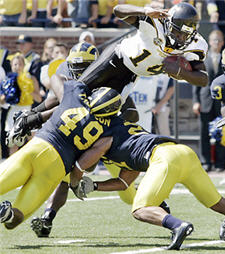 Also:
What you should already know; the importance of editing; and the craft
of writing; avoiding common errors. Also:
What you should already know; the importance of editing; and the craft
of writing; avoiding common errors.
Readings: "Game of good cheer; but not in the press box,"
Mitch Albom; "A Fan Again, After All These Years," Mike
Littwin; "The Rise of the Sports Page," John Stevens; "The
Top 100 Sports Books of All Times," Sports Illustrated; "The
50 Greatest Sports Movies of All Time," Sports Illustrated.
Sports columnist:
Choose your sports
columnist.
Assignment #1 (homework due on Thursday): "My sports autobiography,
or Why I Want to Be a Sports_______." One
page, double-spaced.
Quiz (non-credit):
What's your 2008 sports news IQ?
Assignment #2 (homework): Write a 2-page essay utilizing AP
style on "Was 2008 the Best Sports Year Ever?" (due Tuesday Jan. 27).
Readings for #2 homework assignment: 2008 sports-year-in-review
stories.
"Best American Sports
Writing 2008": Foreward by series editor Glenn
Stout (p. x) and Introduction by editor David
Maraniss (p. xvii).
WEEK #2, Jan. 27 & 29:
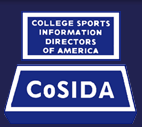 Lecture/discussion:
So, you want to be a sports writer/broadcaster … What is APSE and
AWSM? ... The
secret formula for writing perfectly structured game stories every
time (you do not want to miss this lecture!). Lecture/discussion:
So, you want to be a sports writer/broadcaster … What is APSE and
AWSM? ... The
secret formula for writing perfectly structured game stories every
time (you do not want to miss this lecture!).
Guest speakers (Thursday): How do I gather information? Where
do credentials come from? What is professionalism in the press box? What is CoSIDA?
SID Maureen
Nasser of the GMU
sports information office.
Assignment #3 (in Tickle
Me Gunston): What are the three most important things you learned
from Maureen Nasser and the GMU sports information people?
Assignment #4: Write a 2-page (500-700 word) game story off
a television or radio event (due before class Feb. 3).
Assignment #5: Using the website WashingtonPost.com
(which provides up to two weeks of free archives), read stories by
sportswriter Alan
Goldenbach and prepare (in writing) at least three questions
for the class of Thursday Feb. 5. This is a typewritten, double-spaced
assignment to be handed in before the start of class.
"Best American Sports Writing 2008": "The Legend of Bo," by Joe Posnanski, pp. 103-109.
Additional readings: Combination of online reading and e-mail.
WEEK #3, FEB. 3 & 5:
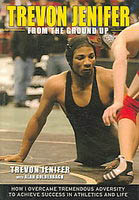 Lecture/discussion: Reporting, interviewing, quotes, attribution tags and transitions.
Lecture/discussion: Reporting, interviewing, quotes, attribution tags and transitions.
Guest speaker/discussion (Thursday): Washington
Post sports writer Alan
Goldenbach on writing the take-out feature. Make sure
you read "A
Gripping Tale" before this class.
Assignment #6
(in Tickle
Me Gunston): What were the three most important things
you learned from Alan Goldenbach's presentation?
Additional
readings: Combination of online reading and e-mail.
WEEK #4, FEB. 10 & 12:
Lecture/discussion: More
on how to cover a game or event.
 
Guest speaker/discussion (Tuesday): Jim Ioveno, News4 website editor. Also, sports blogging on the side (see Jim's hockey blog).
Assignment #7
(in Tickle
Me Gunston):What were the three most important
things you learned from Jim Ioveno's presentation?
Guest speaker/discussion (Thursday): Jon Denunzio, prep
sports editor of the Washington
Post, on how to get started in the business, internships and how
to write a basic sports story -- the building blocks of growing as
a sports reporter.
Assignment #8 (in Tickle
Me Gunston): What were the three most important
things you learned from Jon Denunzio's presentation?
"Best American Sports Writing 2008": "The Kick Is Up ... a Career Killer," by Michael
Lewis, pp. 123-139.
Special reading: "The Ballad of Big Mike," by Michael Lewis.
WEEK #5, FEB. 17 & 19:
Lecture/discussion: How to write sports analysis stories ... review
and catchup ... speakers.
Guest speakers/discussion (Thursday): BJ Koubaroulis, Washington Post prep reporter and multimedia journalist.
Assignment #9 (in Tickle
Me Gunston): What were the three most important
things you learned from BJ's presentation?
"Best American Sports Writing 2008": "The Old Ba' Game," by Eli Saslow, pp. 212-219.
Additional readings:
Combination of online reading and e-mail.
WEEK #6, Feb. 24 & 26:
Lecture/discussion: How to write cover a press conference.
 Guest
speakers/discussion (Thursday): Mock press conference with GMU Assistant Vice President/ Director of Athletics Tom O'Connor on the school's athletic program or the NCAA men's basketball selection process. Guest
speakers/discussion (Thursday): Mock press conference with GMU Assistant Vice President/ Director of Athletics Tom O'Connor on the school's athletic program or the NCAA men's basketball selection process.
Assignment #10: Write a news lede and 2-page story on Tom O'Connor's in-class press conference (due Tuesday March 3).
Assignment #11 (in Tickle
Me Gunston): What were the three most important
things you learned from Mike Wise's in-class presentation?
Coverage
(game/event story) #1 is due Thursday March 5 -- NO EXCEPTIONS!!!
Early deadline is Feb. 26.
WEEK
#7, MARCH 3 & 5:
Lecture/discussion: More
sports writing and editing basics ... writing on deadline ... beat
writing ... women in media and all about AWSM.
Guest speaker/discussion (Tuesday): Former USA Today sports assignment editor Don Collins, a former sports
editor in Little Rock, Ark., will talk about managing a sports staff
and how stories are assigned.
Assignment #12 (in Tickle
Me Gunston): What were the three most important things you
learned from Don Collins' in-class presentation?
Guest speaker/discussion (Thursday): Former assistant sports editor Julie Ward of USA Today.
Assignment #13 (in Tickle
Me Gunston): What were the three
most important things you learned from Julie Ward's presentation?
Coverage
(advance and game/event story) #1 is due Thursday March 5 -- NO EXCEPTIONS!!!
BOOK REVIEW is due by Thursday April 2 in class -- NO EXCEPTIONS!!!
WEEK #8
MARCH 7-15: No class (Spring Break)
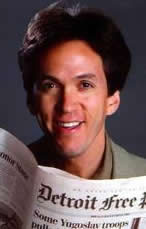 WEEK
#9, MARCH 17 & 19: WEEK
#9, MARCH 17 & 19:
Lecture/discussion:
How to make sense of March
Madness (and other Big Events like the
Masters, the Summer
Olympics).
Guest speaker/discussion: Audio tape presentation by Mitch
Albom, Detroit Free Press
and ESPN (and author
of "Tuesdays With Morrie"),
"Facets of Creativity."
Assignment #14 (in Tickle
Me Gunston): What were the three most important
things you learned from today's in-class presentation?
Guest
speakers/discussion (Thursday): Mock press conference with former Georgetown men's basketball coach Craig Esherick on March Madness.
Assignment #15: Write a news lede and 2-page story on Craig Esherick's in-class press conference (due Tuesday March 24).
"Best American
Sports Writing 2008": TBA.
Additional readings: Combination of online reading and e-mail.
BOOK REVIEW is due by Thursday April 2 in
class -- NO EXCEPTIONS!!!
WEEK #10, MARCH 24 & 26:
Lecture/discussion:
Where did sports journalism and the sports section come from, where
is it going, and are you going with it? Also, sports and race.
 Guest
speaker: Audio tape presentation by Robert
Lipsyte, New York Times sports columnist, from "SportsWorld:
An American Dreamland" (great book to read for your book review if you can find it!) Guest
speaker: Audio tape presentation by Robert
Lipsyte, New York Times sports columnist, from "SportsWorld:
An American Dreamland" (great book to read for your book review if you can find it!)
Assignment #16 (in Tickle
Me Gunston): What were the three most important
things you learned from Robert Lipsyte's presentation?
Guest speaker (Thursday): Nate
Ewell, director of media relations for the Washington
Capitals of the NHL.
Assignment #17 (in Tickle
Me Gunston): What were the three most important
things you learned from Nate Ewell's presentation?
Special
reading: "The
Emergence of 'Sports and Spirituality' in Popular Culture."
"Best American Sports Writing 2006": TBA.
Additional readings: Combination of online reading and e-mail.
BOOK REVIEW is due by Thursday April 2 in
class -- NO EXCEPTIONS!!!
Coverage
(game/event story) #2 is due Thursday April 2 -- NO EXCEPTIONS!!!
Early deadline is March 26.
WEEK #11, MARCH 31 & APRIL
2:

Lecture/discussion: How to write a sports column.
 Guest
speakers/discussion: Guest
speakers/discussion:
Tuesday: Mike
Wise, Washington
Post sports columnist.
Assignment #18 (in Tickle
Me Gunston): What were the three most important
things you learned from Mike Wise's in-class presentation?
Thursday: Jeff
Zillgitt, online sports
columnist, USATODAY.com,
reported from the Winter
Olympic Games in Torino in 2006.
Assignment #19 (in Tickle
Me Gunston): What were the three most important
things you learned from Jeff Zillgitt's in-class presentation?
Special reading: Mike Wise, "The
Psychic Scars That Shaped an NBA Star," and "Arena's
Summer: Bizarre and Absurb."
Additional readings: Combination of online reading and e-mail.
Coverage
(game/event story) #2 is due Thursday April 2 -- NO EXCEPTIONS!!
BOOK REVIEW is due by Thursday April 2 in
class -- NO EXCEPTIONS!!!
Alternative schedule (depending on availability):
Lecture/discussion: More
sports writing and editing basics ... writing on deadline ... beat
writing ... interviewing, using quotes, proper attribution.
Guest speaker/discussion (Thursday): Len
Shapiro, former Washington
Post NFL writer and Washington Redskins beat reporter, current
golf beat writer, on everything you could possibly want to know about
covering a beat, writing on deadline, covering Tiger Woods,
writing a take-out, and the Super
Bowl.
Assignment #20
(in Tickle
Me Gunston): What were the three most important things you learned
from Len Shapiro's presentation?
"Best American Sports Writing 2006": TBA.
Additional readings: Combination of online reading and e-mail.
 WEEK #12, APRIL 7 & 9: WEEK #12, APRIL 7 & 9:
Lecture discussion: So, you want to be a broadcast journalist …
Guest speaker/discussion: Greg
Toland, WJLA-TV Weekend Sports Anchor.
Assignment #21
(in Tickle
Me Gunston): What were the three most important things you learned
from Greg Toland's in-class presentation?
Assignment #22: Choose a Metro Washington area sportscaster and write a 2-page critique
(due before class of April 713) of their daily sportscast (i.e., Lindsay
Czarniak or Greg
Toland are both scheduled to visit class).
"Best American Sports Writing 2006": TBA.
Additional readings: Combination of online reading and e-mail.
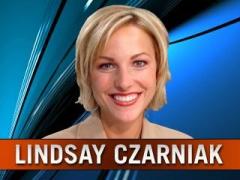 WEEK #13, APRIL 14 & 16: WEEK #13, APRIL 14 & 16:
Lecture/discussion &
video: Sports and gender.
Guest speaker/discussion: Lindsay
Czarniak, NBC News4.
Assignment #22 (in Tickle
Me Gunston): What were the three most important
things you learned from Lindsay Czarniak's in-class presentation?
"Best
American Sports Writing 2006": TBA.
Additional readings: Combination of online reading and e-mail.
MOVIE REVIEW is due by Thursday April 23
in class -- NO EXCEPTIONS!!!
Coverage (game/event story or feature) #3
is due Thursday April 23 -- NO EXCEPTIONS!!!
Early deadline is April 16.
WEEK #14, APRIL 21 &
23:
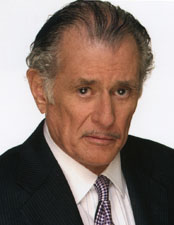 Lecture/discussion &
video: Sports, sportsmanship, sports as folk religion, and hero
worship. Lecture/discussion &
video: Sports, sportsmanship, sports as folk religion, and hero
worship.
Lecture/discussion: Covering
pro sports and professionalism on the job.
Video: Frank
Deford on writing.
"Best American
Sports Writing 2006": TBA.
MOVIE REVIEW is due by Thursday April 23
in class -- NO EXCEPTIONS!!!
Coverage (game/event story or feature) #3
is due Thursday April 23 -- NO EXCEPTIONS!!!
WEEKS #15-16 April 28 & 30, May 5:
Lecture: Careers
in sports and the real world.
Book and movie reviews: Class presentations.
|
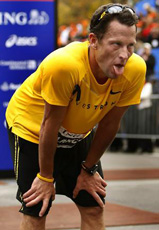
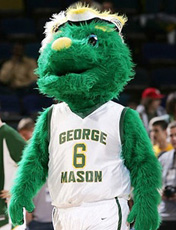

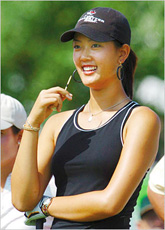
 you
also must master the skills of a business reporter, a legal reporter,
a medical reporter and a metro reporter -- as well as be comfortable
using the Internet as a resource tool and breaking-news medium. Print,
broadcast and online journalism are converging today in ways we never
imagined barely a decade ago. As sports journalists like
you
also must master the skills of a business reporter, a legal reporter,
a medical reporter and a metro reporter -- as well as be comfortable
using the Internet as a resource tool and breaking-news medium. Print,
broadcast and online journalism are converging today in ways we never
imagined barely a decade ago. As sports journalists like 
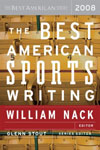
 Also:
What you should already know; the importance of editing; and the craft
of writing; avoiding common errors.
Also:
What you should already know; the importance of editing; and the craft
of writing; avoiding common errors. 



 Guest
speakers/discussion (Thursday): Mock press conference with GMU Assistant Vice President/ Director of Athletics
Guest
speakers/discussion (Thursday): Mock press conference with GMU Assistant Vice President/ Director of Athletics  WEEK
#9, MARCH 17 & 19:
WEEK
#9, MARCH 17 & 19: Guest
speaker: Audio tape presentation by
Guest
speaker: Audio tape presentation by  Guest
speakers/discussion:
Guest
speakers/discussion: WEEK #12, APRIL 7 & 9:
WEEK #12, APRIL 7 & 9: WEEK #13, APRIL 14 & 16:
WEEK #13, APRIL 14 & 16: Lecture/discussion &
video: Sports, sportsmanship, sports as folk religion, and hero
worship.
Lecture/discussion &
video: Sports, sportsmanship, sports as folk religion, and hero
worship.